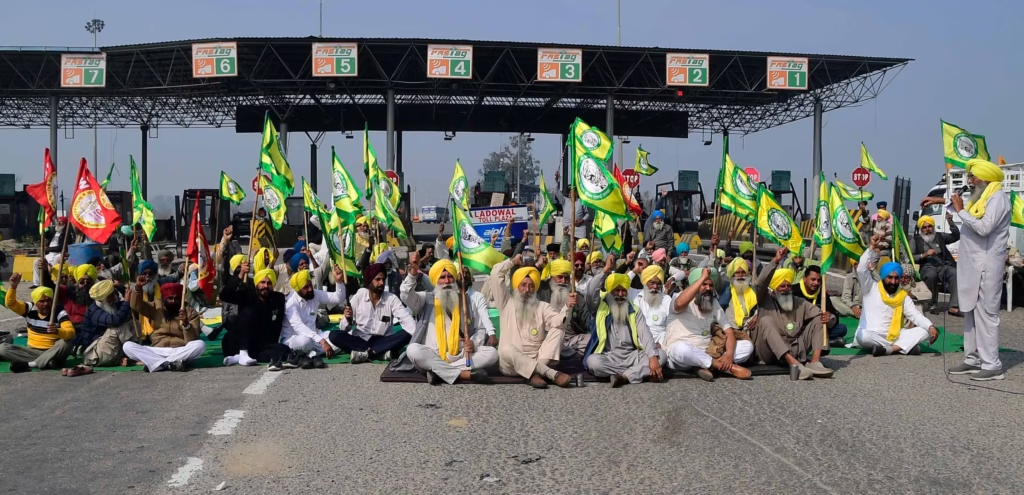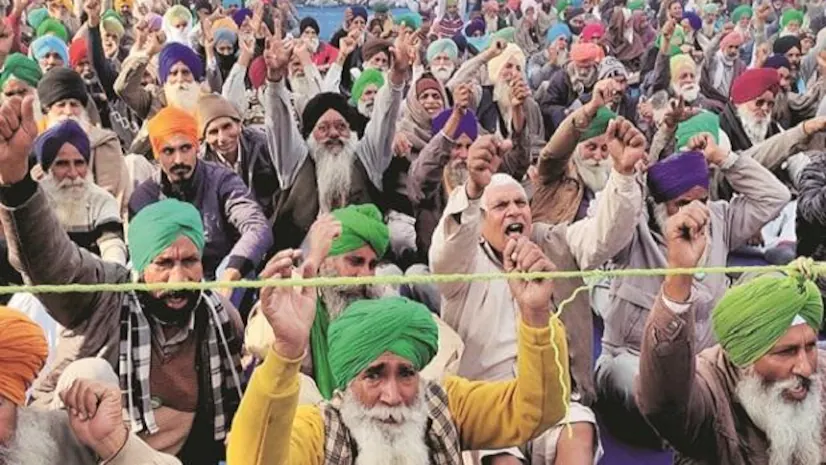Key Highlights:
On December 2, 2024, farmers marching from Punjab and Haryana for a third time demanded legal guarantees for Minimum Support Price or other agrarian reforms. This marks the resurgence of an unending saga of hardship for Indian agriculture and farm communities unwilling to give up in their effort to ensure livelihoods.
Background to the Protest
The protest begins from February 13, 2024. Farmers started demonstrating at Shambhu and Khanauri border points between Punjab and Haryana. Their demands were that MSP on all crops must be legally guaranteed, there must be full debt waivers, and Swaminathan Commission recommendations should be implemented. Despite long sit-ins and several attempts to meet with the government, the farmers felt that their grievances were not being addressed, hence they decided to march towards the national capital.

Main Demands of the Farmers
The protesting farmers have put forth a few critical demands:

- Statutory Guarantee of MSP: The farmers demand statutory guarantee of MSP for all crops so that they get a fair compensation and financial security.
- Debt Waiver: Implementation of the Swaminathan Commission’s recommendations to provide debt relief to alleviate the financial burdens on farmers.
- Land Acquisition Compensation: Enhanced compensation for land acquired for developmental projects and reservation of 10% of residential plots for affected families.
- Justice for Lakhimpur Kheri Victims: Accountability and justice for the victims of the 2021 Lakhimpur Kheri violence.
- Pension for Farmers and Farm Labourers: Provide pensions to help stabilize older age farmers and farm workers.
December 2 March
On the morning of December 2, farmers gathered close to the Mahamaya Flyover in Noida, readying to march towards Delhi. As the protest was scheduled to begin, Delhi and Noida police had set up multi-layered barricades at border points to prevent entry into the capital. However, close to the Dalit Prerna Sthal in Noida, farmers broke through these barricades, causing great disruptions in traffic.
Agri leaders, in consultations with law, agreed to temporarily suspend their agitation. They vacated the protest place in that direction. Joint Commissioner of Police (Law and Order), Noida, Shivhari Meena, quoted the following: “The farmers announced that Delhi Chalo movement today and were having discussion over their concerns. The officers had stated their demands, and officer did assure them also. So, traffic on all stretches in normalcy also.
Political Reactions
The farmers’ march has evoked diversified political responses. Former Haryana Chief Minister Bhupinder Singh Hooda appealed that the government should hold an immediate dialogue with the farmers and fulfill their demands. “The issues of the farmers should be resolved amicably,” he said.
Future Course of Action
Farmer unions have announced that they will intensify their agitation, despite the temporary halt. The Samyukta Kisan Morcha (Non-Political) and the Kisan Mazdoor Morcha have announced a renewed march towards Delhi on December 6, 2024, from the Shambhu border. The decision comes after months of protests at border points, where farmers have expressed frustration over the lack of governmental engagement.
KMM leader Sarwan Singh Pandher said, “We have been left with no option. We waited peacefully for the government (to reach out) for nine months. But now we will head towards Delhi.”
Government’s Stance
The central government claims to remain open for dialogue, which it says it has previously undertaken with the farmer representatives. However, the farmers aver that there is no productive outcome of these discussions as a result of which there was a deficit in trust. The government says it is its duty to ensure public order and has advised the protesters not to disturb the life in society.
Social Impact
The farmer protests have made themselves felt in everyday life, especially on the outskirts of Delhi. The march on 2 December severely inconvenienced commuters, sending diversions around traffic, and the authorities issued advisories to avoid inconvenience. The protests bring into play the tricky balance between the right to protest and upholding public order.
Conclusion
This surge in farmer protests points to the chronic problems plaguing India’s agricultural sector. Deep-rooted issues demand not just resolutions but solutions that are all-encompassing and empathetic. The more the situation evolves, the more crucial it becomes to have constructive dialogue between the government and the representatives of the farmers.
For Latest News Updates Click Here
